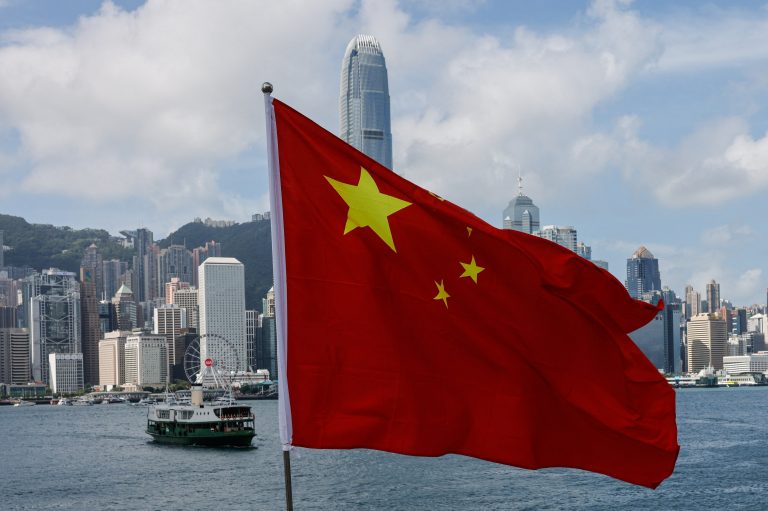
Anti-Trump Protests in D.C. Ahead of Inauguration
The atmosphere in Washington, D.C., ahead of Donald Trump’s presidential inauguration was marked by fervent protests, unyielding solidarity, and demands for justice. Thousands of demonstrators converged on the nation’s capital, raising their voices against a political agenda they deemed regressive and harmful to the values of equity, justice, and human rights. This historic gathering, dubbed “The People’s March”, represented a collective stand against policies perceived as divisive, offering a powerful testament to the resilience and unity of grassroots movements.
The People’s March: A Rallying Cry for Justice
The People’s March brought together activists, organisers, and citizens committed to resisting systemic injustices. Among the speakers was Tania Rodgers, a housing organiser for One DC Homes for All, whose speech encapsulated the day’s themes of empowerment and resistance.
“My name is Tania Rodgers,” she declared, addressing the crowd. “Today, we gather united by our passion for justice and fuelled by the knowledge that we are powerful when we organise and win when we stand together.”
Rodgers highlighted the urgent need for housing justice, emphasising its intersectionality with racial, economic, and gender equality. “Housing is a human right,” she asserted, “where families can rest, grow, and build futures without fear of being displaced for corporate profits.” Her message resonated deeply with those in attendance, many of whom bore personal experiences of displacement and systemic neglect.
Rodgers’ call to action went beyond words, urging the audience to support tenant unions, coalition-building, and transparent policymaking. She concluded with a powerful reminder: “Today, let this be our promise. We will stay vigilant, fight for safe, stable homes, and ensure that no woman stands alone in this struggle.”
Voices of Resistance: Judith Brown Diannis and Beyond
Another key voice was Judith Brown Diannis, Executive Director of the Advancement Project, a national racial justice organisation. Diannis energised the crowd with chants of “Whose schools? Our schools!” as she decried efforts to dismantle public education and civil rights protections.
“Public education is one of the last public goods in our country,” she stated. “That’s why it is under attack.” Diannis pointed to policies promoting school vouchers and deregulation, which she argued benefit billionaires at the expense of marginalised communities. Her speech painted a sobering picture of systemic inequalities, but it also offered hope rooted in collective action. “Our ancestors dreamt of freedom,” she said. “They knew another world was possible, and so do we.”
The crowd echoed her sentiments, chanting, “Another world is possible,” a rallying cry that underscored the day’s events.
Cultural Solidarity: Music and Unity
Beyond speeches, the event featured musical performances that infused the gathering with a sense of shared culture and purpose. The Dream Defenders People’s Choir performed the song “We Rise”, a ballad born out of the Dakota Access Pipeline protests. The choir encouraged participants to join in, creating an atmosphere of unity through music.
The final performance was a tribute to Fred Hampton, the Black Panther Party leader, with a ballad titled “Chicago I”. As fists rose in solidarity, the crowd affirmed their commitment to continuing Hampton’s legacy of fighting for justice and equality.
Angela Davis’ Message: A Beacon of Hope
One of the most anticipated moments of the day was the reading of a letter from renowned activist and scholar Dr Angela Davis. Though unable to attend in person, Davis sent a message of solidarity that was read aloud by Ashley Woodard Henderson, a respected leader in the movement.
“Trump may have won the election,” Davis wrote, “but we will never, ever be complicit in the kind of fascist programming he threatens to put in place.” Her letter touched on key issues, including immigration, police reform, reproductive rights, and global solidarity with oppressed communities.
“We are strong, and we are on the right side of history,” she reminded the crowd. Her words served as a rallying cry, encouraging attendees to persist in their fight for justice.
A Diverse Coalition of Protesters
The diversity of the attendees was a testament to the broad coalition united against Trump’s presidency. From seasoned activists to first-time marchers, the crowd reflected a spectrum of experiences and identities. Jenna, a paediatric nurse practitioner from North Potomac, Maryland, spoke about her motivations for joining the protest.
“I really believe that the children are our future,” she said. “We need to protect them, protect women’s rights, and celebrate the diversity that makes this country great.”
Others expressed their resistance through creative means, including signs inspired by popular culture. One marcher referenced the musical Wicked, adapting its lyrics to convey defiance against Trump’s administration: “No president that there is or was is ever going to bring us down.”
The Road Ahead
As the protests drew to a close, organisers reminded participants of the ongoing work needed to sustain the momentum. “This march isn’t just about Trump,” one speaker declared. “It’s about us—about building a future where justice prevails.”
The message was clear: the fight for equality and human rights transcends any single presidency. Participants were urged to join organisations, amplify demands, and remain active in the movement.
Conclusion: A Call to Action
The anti-Trump protests in D.C. ahead of the inauguration marked a pivotal moment in the broader struggle for justice and equality. From powerful speeches to musical tributes, the event embodied a spirit of resistance and hope. While the road ahead is fraught with challenges, the unity displayed in Washington, D.C., offers a powerful reminder that change is possible when people come together.
As Dr Angela Davis aptly stated, “We will not stand still.” The protests were not an endpoint but a beginning—a promise to keep fighting for a future where every community can thrive. The call to action was clear: stay vigilant, stay organised, and never lose hope.
Aric Jabari is the Editorial Director of the Sixteenth Council.



